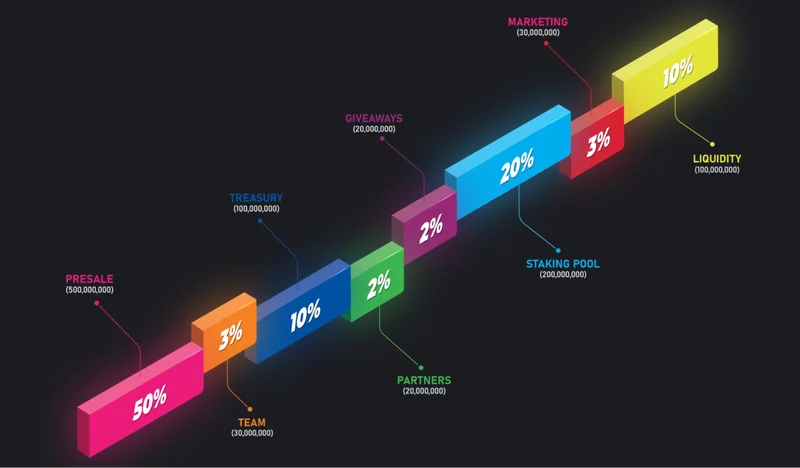The technological support for blockchain money laundering mainly stems from its core characteristics, such as anonymity, immutability, and decentralization. These features enable criminals to conduct complex fund transfers through blockchain, concealing the sources of illegal funds. Governments and regulatory bodies around the world combat blockchain money laundering because it poses a threat to global financial security and economic order and may be used to finance crime or terrorism.

Technological Support for Blockchain Money Laundering
Anonymity and Privacy
Although all transaction records on the blockchain are public, the identities of the transaction parties are not directly displayed. For example, the Bitcoin network uses wallet addresses for transactions, and these addresses are not directly linked to specific individuals. This pseudonymity provides a certain cover for money launderers, allowing them to hide the sources of funds through multiple wallet addresses and complex transaction networks.
Privacy Coins: In addition to conventional cryptocurrencies like Bitcoin, some privacy coins (such as Monero and Zcash) offer higher levels of anonymity, making transactions untraceable. The privacy features of these currencies attract participants in some money laundering activities.
Decentralization and Borderlessness
Blockchain networks are decentralized, meaning there is no central authority controlling them, and all transaction records are distributed across nodes worldwide. This allows cryptocurrencies to easily bypass traditional banking systems, enabling cross-border transfers through a peer-to-peer network without the oversight or restrictions of traditional financial systems.
Cross-Border Money Laundering: Since cryptocurrencies have no borders, money launderers can easily transfer funds from one country to another, operating through different exchanges or DeFi (Decentralized Finance) platforms to evade monitoring by banks and governments.
Mixing Services
Mixing services (or "tumblers") are tools designed to enhance transaction anonymity. They mix cryptocurrencies from different users together and then disperse them back to users, obscuring the trails of fund flows. These services make it more difficult to trace the sources of funds.
Example: Mixing services like Tornado Cash are widely used in some high-anonymity blockchain projects, allowing users to disperse transfers and conceal the original sources of transactions.
Decentralized Finance (DeFi) Platforms
DeFi platforms typically do not require strict KYC (Know Your Customer) processes, allowing users to operate through lending, trading, staking, and other methods without providing any identity information. This creates an unregulated financial environment for money launderers.
No KYC Transactions: Since many DeFi platforms do not mandate identity verification, money launderers can utilize these platforms to move funds globally without exposing their true identities.
Smart Contracts and NFTs
Smart Contracts: Smart contracts allow for the automatic execution of transactions on the blockchain. Although they are designed to streamline transaction processes and enhance trust, they can also be used to obscure complex money laundering schemes. Criminals can write contracts to automatically transfer or disperse funds.
NFT (Non-Fungible Token) Market: Some criminals may exploit false transactions to purchase high-value NFTs, artificially inflating their value to "clean" illegal gains.
Reasons for Countries to Combat Blockchain Money Laundering
Security of the Financial System
Money laundering activities pose a severe threat to the stability of the global financial system. If money laundering is not effectively controlled, criminal organizations and terrorists will leverage these illegal funds to further expand their influence, potentially triggering financial crises. The emergence of blockchain technology has created a new "breeding ground" for money laundering, prompting countries to strengthen their regulations.
Financing Terrorism: The anonymity of blockchain technology enables terrorist organizations to raise funds through cryptocurrencies for financing terror activities. Combating these activities is crucial for global security.
Drug Trafficking and Human Trafficking: Criminals engage in drug trafficking, human trafficking, and other illicit activities using cryptocurrencies, with money laundering helping these organizations legitimize their illegal gains and fuel the expansion of crime.
Tax Evasion and Economic Crimes
Fund transfers conducted through blockchain may circumvent national tax systems, resulting in a loss of government revenue. Criminals hide assets through cryptocurrencies, evading tax regulations and impacting national financial income.
Tax Money Laundering: Money launderers may conceal illegal funds in cryptocurrency accounts to avoid declaration and payment of taxes, constituting economic crimes.
Increased Risk of Financial Crime
Blockchain money laundering could lead to a sharp increase in financial crimes, as cryptocurrencies make it easier for criminals to transfer funds into hard-to-trace channels. This poses a significant challenge to the global financial system, especially in the context of cross-border transactions and globalization.
Criminal Activities Outside the Traditional Financial System: Blockchain provides an environment free from bank and government oversight, allowing criminals to easily utilize it to transfer and hide funds, increasing the difficulty of combating financial crime globally.
Public Trust and Market Confidence
The legitimate applications of blockchain and cryptocurrencies (such as payments, asset management, and decentralized applications) should bring significant innovation and benefits. However, money laundering and criminal activities undermine public and investor trust in blockchain, affecting the healthy development of the market.
Protecting the Legitimacy of Cryptocurrencies: If the blockchain and cryptocurrency industry is widely perceived as a tool for supporting crime, it could lead to stricter government intervention, impacting its innovative potential. Combating money laundering helps maintain the legitimacy of blockchain and public trust.
Measures Taken by Countries to Combat Blockchain Money Laundering
Anti-Money Laundering Laws (AML) and KYC Regulations
Countries around the world generally require cryptocurrency exchanges and financial service providers to comply with strict **Anti-Money Laundering (AML) and Know Your Customer (KYC)** regulations. Cryptocurrency exchanges must verify user identities and monitor and report suspicious transactions.
The Financial Action Task Force (FATF) recommends: FATF advises countries to implement strict KYC and AML compliance requirements for cryptocurrencies and to enforce the "travel rule," which necessitates the collection and sharing of identity information for both parties involved in cryptocurrency transfers.
Blockchain Tracking and Analysis Technologies
The public and transparent nature of blockchain actually becomes key in tracking money laundering activities. Law enforcement agencies collaborate with third-party companies (such as Chainalysis and Elliptic) to use blockchain analysis technologies to trace fund flows and identify wallet addresses and transactions associated with illegal activities.
On-Chain Analysis: Using on-chain analysis tools, law enforcement agencies can track complex fund flows, identify addresses used by money launderers, and ultimately trace the source of illegal funds.
International Cooperation and Information Sharing
Governments, international organizations (such as the FATF and the United Nations), and financial institutions collaborate to establish a global anti-money laundering framework to combat cross-border money laundering activities conducted through blockchain. International cooperation aids in tracking funds flowing across different jurisdictions, preventing criminals from using cross-border advantages to evade detection.
How to Avoid Falling into Money Laundering Traps
Understand the Basics
Learn the fundamentals of blockchain and cryptocurrencies:
Understand how blockchain works, the characteristics of cryptocurrencies, and the relevant laws and regulations. Read related books, articles, or online courses to enhance your knowledge base.
Choose Legitimate Trading Platforms
Use reputable exchanges:
Select well-known and regulated cryptocurrency exchanges for trading. These exchanges typically implement strict KYC and AML procedures.
Check the platform's compliance:
Ensure that the exchange complies with local regulations and check whether it is registered with financial regulatory authorities.
Avoid Anonymous Transactions
Be cautious with mixing services:
Avoid using mixing services or other anonymization tools. These services may obscure the sources and destinations of funds, increasing your risk of being involved in money laundering activities.
Maintain transparent transaction records:
Keep records of all transactions and ensure transparency, verifying that the sources and purposes of all transactions are legitimate.
Enhance Identification Ability
Be alert to suspicious activities:
Pay attention to any unusual activities in transactions, such as funds from unknown sources or abnormal transaction frequencies.
Be wary of high-return promises:
Be cautious of investment opportunities that promise high returns, especially within a short timeframe. These are often schemes for fraud or money laundering.
Comply with Laws and Regulations
Understand local laws:
Familiarize yourself with the legal regulations regarding cryptocurrencies in your country or region, including taxation, reporting, and trading restrictions.
Make appropriate tax declarations:
Declare your cryptocurrency transactions for tax purposes as required by law to avoid legal risks associated with tax evasion.
Use Secure Technological Measures
Enable two-factor authentication:
Activate two-factor authentication (2FA) on exchanges and wallets to enhance account security and prevent unauthorized access.
Keep software updated:
Regularly update your operating system, browser, and any cryptocurrency-related software to prevent security vulnerabilities from being exploited.
Engage with Legitimate Communities
Participate in compliant forums and communities:
Join professional and legitimate cryptocurrency communities to gain information and share experiences, enhancing your ability to recognize potential risks.
Consult Professionals
Seek professional advice:
If you feel uncertain about a particular transaction or investment opportunity, seek professional legal or financial advice to ensure that your actions are legal and compliant.
FAQ
Q: How is blockchain technology used to combat money laundering activities?
A: Regulatory agencies in various countries leverage the transparency of blockchain to track suspicious transactions using blockchain analysis tools (such as Chainalysis and Elliptic). These tools can identify wallet addresses associated with money laundering activities, assisting law enforcement in analyzing fund flows and detecting anomalous behavior in a timely manner. Additionally, countries are strengthening Anti-Money Laundering (AML) laws and Know Your Customer (KYC) regulations to ensure cryptocurrency exchanges verify user identities.
Q: How do blockchain money laundering activities affect ordinary users?
A: Ordinary users may face stricter regulatory and compliance requirements due to money laundering activities; for example, exchanges may request more identity information. Furthermore, money laundering could lead to a decline in public trust in blockchain technology and cryptocurrencies, affecting market stability and, consequently, impacting ordinary users’ investment and trading opportunities.
Q: What specific measures are different countries taking to combat blockchain money laundering?
A: Countries have implemented various measures to combat blockchain money laundering. For instance, the United States has established the Financial Crimes Enforcement Network (FinCEN), requiring cryptocurrency exchanges to adhere to strict AML and KYC requirements; the European Union has enacted the Fifth Anti-Money Laundering Directive, mandating cryptocurrency service providers to register and comply with relevant regulations; while China has aggressively cracked down on cryptocurrency trading and ICOs to curb money laundering and financial risks.
Q: How is technological innovation changing the measures to prevent blockchain money laundering?
A: As blockchain technology evolves, measures to prevent money laundering are also continually innovating. For example, artificial intelligence and machine learning are utilized to analyze transaction patterns and identify suspicious activities. Additionally, privacy-preserving technologies like zero-knowledge proofs are under research to ensure transaction anonymity while reducing the risk of money laundering. Technological advancements enable regulatory agencies to monitor and combat money laundering more effectively.
Q: What is the impact of cryptocurrency legalization on money laundering activities?
A: The legalization of cryptocurrencies may initially increase the risk of money laundering, as more individuals become exposed to cryptocurrencies without adequate knowledge or awareness of the risks. However, legalization also implies stronger regulatory and compliance requirements, which will aid in identifying and combating money laundering activities. In the long run, legalization can encourage the entire industry to move toward transparency and compliance, thereby reducing the incidence of money laundering.
Related Articles

What is SparkLend? A Beginner-to-Advanced Guide to Decentralized Lending Made Easy
SparkLend is a decentralized, non-custodial liquidity market protocol built on the Ethereum blockchain. Simply put, it functions like a bank without intermediaries, allowing users to borrow and lend d
June 26, 2025
What is sUSDS? How Do I Acquire sUSDS?
This guide will walk you through Sky Savings’ sUSDS and sUSDC—your gateway to earning yield with stablecoins while keeping your funds secure.Sky Savings: Your Journey to Stablecoin Yields Begins HereW
June 26, 2025
What is SparkLend? A Complete Guide from Beginner to Pro
SparkLend is a decentralized, non-custodial liquidity market protocol that allows users to participate as lenders or borrowers. Lenders provide liquidity to earn passive income, while borrowers can ta
June 24, 2025
What Exactly Does Spark Protocol Do? A Complete Guide
This guide will walk you through Spark Protocol — an innovative platform designed to tackle the long-standing issue of fragmented liquidity in the DeFi space. You'll learn how to earn yield, borrow as
June 24, 2025
RXS Token Trading Guide: From Presale to Uniswap – A Complete Walkthrough
This guide will walk you through the trading process of the RXS Token, from the restrictions during the presale phase to free trading on Uniswap, helping you trade securely and efficiently.1. Introduc
June 24, 2025
